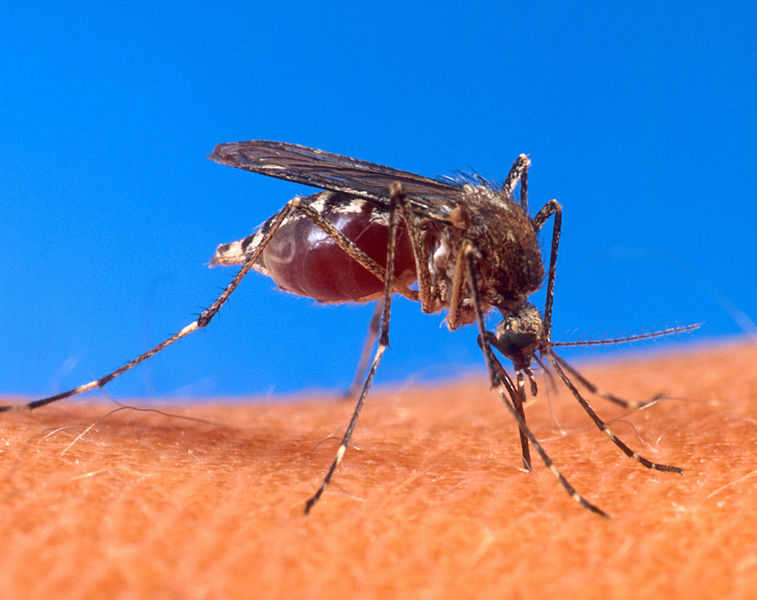Two years ago, the Ebola virus buffeted West Africa and alarmed the world. A belated international mobilization coupled with heroic local action averted a wider global crisis — but not before 28,000 people were infected and more than 11,000 died. Survivors continue to live with the long-term health consequences.
As detailed here at the Monkey Cage, the World Health Organization came under fire for how it handled the Ebola crisis. The repercussions of the slow response to the virus continue to haunt the organization as it attempts to tackle the Zika virus and other global-health emergencies.
Although the WHO jumped in comparatively faster to declare the Zika outbreak a public-health emergency of international concern, structural and financial problems continue to hamper its operations.
The big WHO turning point next year
We recently edited a Global Health Governance special issue on the Ebola crisis — and believe 2017 will be pivotal for the WHO and global-health governance. WHO Director-General Margaret Chan will complete her term, and the World Health Assembly will vote on her successor in May 2017.
What’s different about this election is increased transparency. Candidates will participate in a public process to share their visions of the WHO and to answer questions from member states. The election process will now allow for the active involvement of member states in deciding who is best suited to lead the WHO.
Why is this election important?
The WHO’s influence has been declining for some time. New actors and sources of finance such as the Gates Foundation have created a more diffuse global-health landscape. Spending on global health increased dramatically since 2000, but much of the funds were channeled through new entities such as the Global Fund to Fight AIDS, Tuberculosis and Malaria — not the WHO.
The organizational and leadership shortcomings of the Ebola response further diminished the WHO’s reputation. A number of our special-issue contributors — including Charles Clift, Sophie Harman, Andrew Price-Smith and Timothy Mackey — argue that the post-Ebola reforms largely failed to address serious WHO structural defects, namely its weak finances and insufficient attention to strengthening of health systems.
What about WHO funding?
WHO relies overwhelmingly on voluntary contributions from countries, often for specific projects and priorities that leave core WHO functions such as surveillance under-resourced. Donors have been unwilling to raise the level of assessed dues and invest in the organization. Moreover, the WHO’s control over its various regional offices remains a problem. The organization’s ability to support health-systems strengthening, the centerpiece of efforts to head off future health crises in various countries, remains woeful.
These are not new problems. But the WHO is the primary point organization on global-health issues and needs to lead targeted responses to health emergencies as well as coordinate preparedness plans.
What do we know about the candidates for the WHO director-general?
The nomination process to elect the next WHO leader opened April 22 — candidates must be nominated by one or more countries. This time, there may be strong pressure to select someone from Africa or Latin America, as all the WHO director-generals since 1973 have come from either Asia or Europe.
Some of the names discussed so far include Michel Sidibé, the executive director of the Joint U.N. Program on HIV and AIDS; and Awa Coll Seck, former Senegalese minister of health and executive director of the Roll Back Malaria Partnership. Others with both expertise and credibility include Agnes Binagwaho, Rwanda’s minister of health; and Graça Machel, chair of the Partnership for Maternal, Newborn and Child Health, and a past chair of the GAVI Alliance Board. Tederos Adhanom Ghebreyesus, foreign minister of Ethiopia and a former health minister — who has chaired both the Global Fund and the Roll Back Malaria Partnership — is a candidate. Phillipe Douste-Blazy the current head of Unitaid and is a former French minister of foreign affairs and of health, has also been nominated and reportedly has the support of the French government. Sania Nishtar, Pakistan’s former minister of health, is also interested in the post.
The WHO executive board will interview a short list of the top-five candidates in early 2017 and present the top-three candidates for a vote by secret ballot at the May 2017 World Health Assembly
It’s no easy role to fill — the WHO director-general will need to regain the confidence of the organization’s stakeholders, particularly its donors. She or he has to boost funding for core functions that only a global organization really can perform, such as coordination of disease surveillance and early-warning efforts. Moreover, the next director-general will have to mobilize more resources for health-systems strengthening for countries that lack capacity, lest we see a repeat of the Ebola and similar crises.
Gro Harlem Brundtland, a doctor and public health specialist who served as director-general from 1998 to 2003, may be the model for the next WHO leader. Under her watch, the WHO moved forward on an ambitious treaty on tobacco control and supported price reductions for AIDS drugs.
If experience is any guide, reforming and rebuilding the WHO will require a leader who knows global public health issues — but also is politically savvy enough to restore the world’s trust and confidence in an organization that safeguards the health of millions.
JOSHUA BUSBY
KAREN GRÉPIN
JEREMY YOUDE










